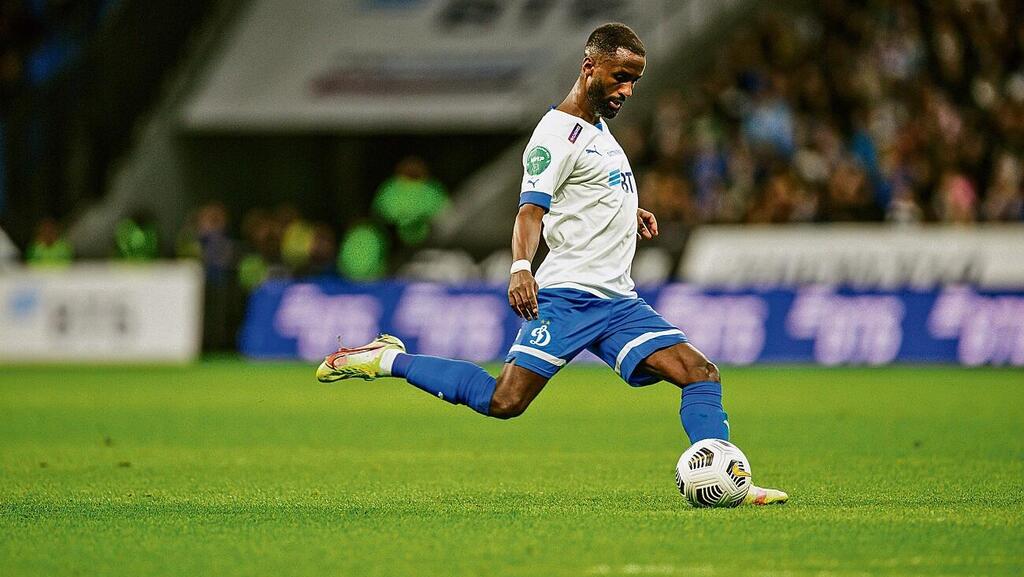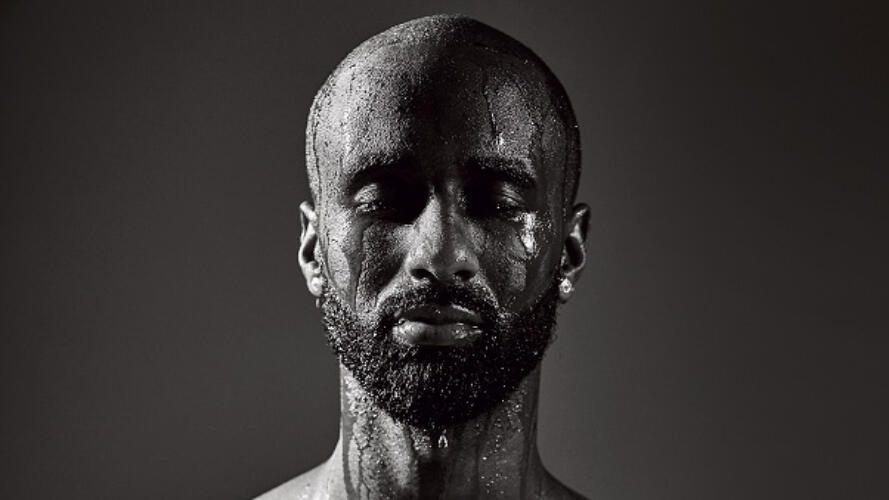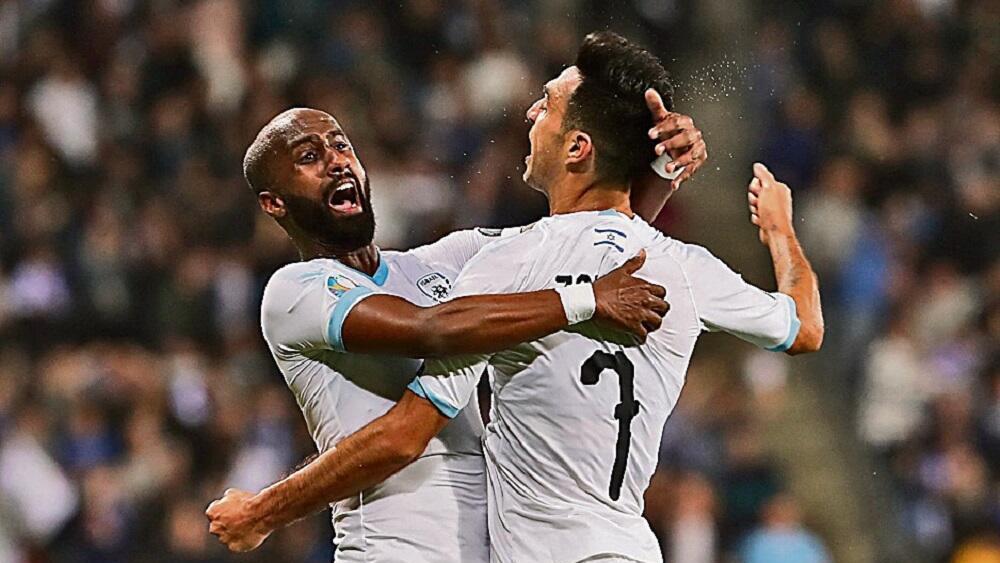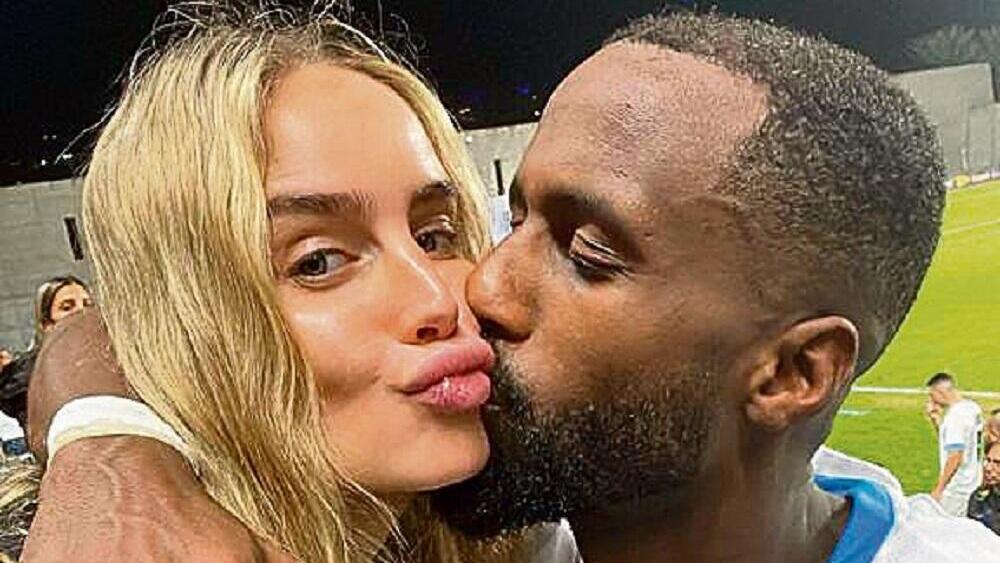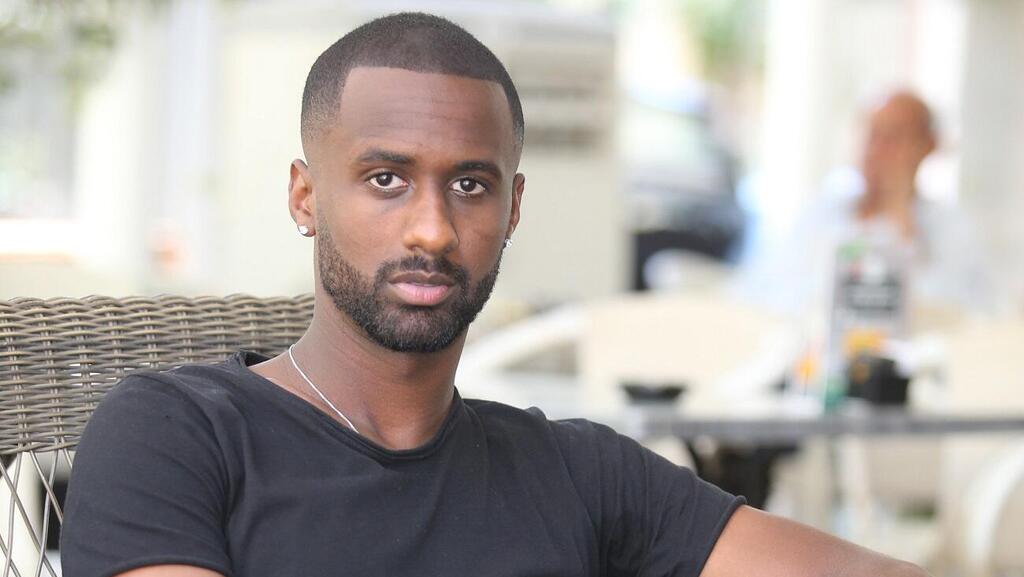“You know why I don’t listen to criticism regarding my move to Russia and playing for FC Dynamo Moscow? Because anyone who is reading this article now, anyone who has criticized me would have accepted that offer. I'm concerned of taking care of my family and doing what is best for it, but in Israel everyone thinks they know better," says Eli Dasa, who recently made history by becoming the first Israeli of Ethiopian descent to captain the country's national soccer team.
You knew the issue of signing for a Russian team while the war in Ukraine was still raging would create an issue and draw criticize
“I have no problem with that. I understand the criticism of my move to Russia. But in the first two months there, they would take my quotes from post match interviews from Russia - which is something I'm obliged to and where I would say that I was happy - and plant them alongside news showing the war.
"I was sitting at home laughing, because it was an attempt to stack public's opinion against me.”
Didn't any part of the criticize made you regret the move?
"Why would I regret it? I was confident in my decision, otherwise I wouldn't have made it. I bear no grudge or jealousy. On the contrary, I wish everyone would succeed financially and professionally, especially considering where I come from. If I wouldn't have become the highest earning Israeli soccer player, no one would have cared about my move. But in Israel, people hate to see others succeed."
When speaking about the place he came from, 30-year-old Dasa refers to an old camper trailer in Haifa in which he grew up in. Dasa comes from a family of the lowest socioeconomic status in Israel, thus he took it upon himself to become a provider from a young age.
"The Russians treat the players as kings," says Dasa. "The Russian players are also people of honor. Everything is bigger here compared to Israel. There are some 250 team employees who work with the players, the training complex is the size of a city. The team also takes care of me and my wife, we have a personal driver, a chef and a teacher who we are learning Russian with. There is also a huge Jewish community, everyone is familiar with Jewish customs and some Hebrew words. On Yom Kippur, I was praying at a local Chabad, there were no less than 2,000 worshipers, and it was amazing."
Compared to that, how was the life in Haifa growing up?
"It wasn't anything like the modern kind of camper trailers. It was an old, wooden caravan in a large area full of Ethiopian immigrants, where the trailers were stacked a meter from one another. My parents had to work most of the time, and thanks to them I was never hungry. It gave me the will to become a father and give my children the things I couldn't have."
When was the first time you encountered a situation in which you couldn't get something due to financial reasons?
"When we moved from Haifa to Ness Ziona in the center of Israel. I wanted to join the children's soccer team, but my parents couldn't afford it. It's sad that parents have to pay thousands of shekels to allow their kid to participate in an afterschool activity. It took two years for me to join a soccer team. My parents saw how important it was for me, and I also helped my mother with her cleaning job at a local college to earn more. She also worked as a cashier, while my father was working at a sewage company, we barely saw him.
"It consumed me from the inside, I was the best player at school, and yet after school I could only play in my neighborhood while all the others went for soccer practice. They were all living the dream and I had to stay behind, it was very hard for me because soccer was the most important thing for me."
How did you deal with the fame and the extreme transition of economic struggle to becoming rich?
"A man who was like a father to me once told me: 'Every time you make a step toward glory, take two steps back when it comes to modesty.' I'm a person who loves going to Torah classes, and I also love being with my family, which for me is a symbol of modesty."
"My wife, Yarden, and her parents are the most humble people I've met in my life, and I like visiting them in Binyamina, which is a very quiet and calm place. These kind of things help me keep my feet on the ground and away from all the madness of being famous, it puts things in prospect."
Dasa married Yarden a year ago, after a long-term relationship, and now they are expecting their first child.
"It is something I have waited my entire life. I've been feeling like I am supposed to be in charge and have responsibilities since I was a child myself, and I think it prepared me well for becoming a father."
Last March, Dasa also became the first Israeli of Ethiopian descent to become the captain of Israel's national soccer team. Although it was a friendly match against Germany in which Israel lost 0:2, Dasa is expected to stay as the captain during the Euro 2024 qualifying campaign, which will start next month.
"There is no better feeling than hearing the Israeli anthem as the captain," says Dasa. "I can't describe the amount of messages and calls I received from the Ethiopian community. People were very proud of me, but it wasn't just that. One person told me that he was going through a difficult time in his life, and when he saw me there, it gave him hope, because I came from nothing. His words meant everything."
Do you feel there is still racism in the Israel society toward the Ethiopian community?
"Count the number of racist events that happen in Israel, and tell me. It's not fair that Ethiopian kids get beat up by cops in their neighborhoods just because they are black. This kind of racism is sickening and hurts me.
What about you, when did you have to deal with racism?
"When I moved to Russia people warned me that it was a very racist country, but compared to what I went through in Israel, it was nothing. I had to deal with racism almost every game [in Israel]. Once, I even approached the referee during the match, when the racist jibes got out of hand, and he just told me: 'Keep playing.' It annoyed me."
And in your day-to-day life?
"I didn't like the fact that suddenly when I became famous everyone changed the way they treated me. If you are a racist, be a man and stay a racist even though I'm famous, don't be racist only toward the weak. I personally didn't suffer from police brutality [in Israel], but who knows, maybe if things were different, I might have gotten shot or something, who knows."


